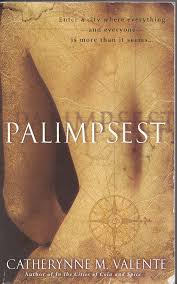One of the shittiest things about growing up (and there are a great many shitty things about growing
At some point, we all had to live the sad scene from Hook where Wendy admits that it’s over. She got married and passed out of childhood forever; she’s forgotten how to fly. There’s some shame in that admission. It’s never really said, but there are lots of metaphors for it. The most direct one I can remember is the dæmon of Philip Pullman’s His Dark Materials series; once the dæmon has been touched by a lover, it never shapeshifts again. In most fantasy universes, there is some unspoken understanding that only a virgin can ride the unicorn. Growing up means having sex. Having sex means losing innocence, it means handing over the keys to those worlds and being constantly reminded that the real thing is boring, nasty, brutish, and short.
Fantasies for grownups are often built on this; they are costumed fabulist orgies that dress up sex acts to make them more promising than they are in real life. They take a biologically driven absurd necessity and weave it into the magical world, remembering that we are not children and that when we stray back into the realms of faerie, this is pretty much what we’re hoping for. There are good examples: Jacqueline Carey’s Kushiel books are wonderful fantasies for grownups, full of sexy intrigue and allusions to ancient history.
The only book I’ve ever read that accepts that grownups are sad and broken and dtf and still desperately trying to fly toward that second star on the right is Catherynne M. Valente’s PALIMPSEST. This book introduces the concept of a sexually transmitted city. Every person who is infected carries a piece of the map of the city of Palimpsest somewhere on their body. When they sleep with someone, that person is transported to their part of the city. Not only is sex part of the story here, it is the means of transport to the magical world.

There isn’t much of the story I can give away. It is woven with many threads, many connections between lovers and friends and rivals. It is an international story, taking characters from Italy and Russia and Japan. It is a story in which love is blind beyond all reason; couplings and triplings take place in the blind desire to be transported and gender is left in the dust. The truth unravels slowly, like an aerialist unspooling hundreds of feet of silk only to end up dangling still so far overhead that you know she is naked but you can’t make out her face.
This is a book that makes love to trains. This is a book that reveals the subtle ticktock sexiness of insects. This is a book that knows what you really want from a tailor but have always been afraid to ask. This is a book that takes the magic of place and uses it to turn you on and confuse you until you’d make love to an apple tree in bloom. This is a book whose prose is so dreamlike that Ray Bradbury dials it sometimes late at night and asks it to describe New York to him so he can sleep. This is a book that drowns you in a bowl of cream and makes you believe that you have always been a cat. This is a book that scars your face so that everyone who has read it knows you as one of their own. This is a book that teaches us how to find each other.
Reading this was like hearing a thousand stories shouted into a cave while you stand at the other end and try to pick one voice out from the others. It’s about cruising and secrets and the terrible nakedness between long-term lovers. It’s about jealousy and dissatisfaction and immigration and class. It’s about what we expect to know of someone once we have known them in the flesh; it’s about what we will never know.

Amid the tangle of tales, the one that seared itself to my skin in a crisscross blot of inky streets was the story of November. November is inducted into the society of travelers, but her piece of the map of Palimpsest shows up on her face. She cannot hide it, like the people she knows who are marked on back or thigh. She is unable to deny at all what she has become. In all other fantasy books, this is the end for a woman or a girl. She receives the wound, the brand of having had sex and she can never come back. Except that this is Palimpsest, and her mark brings her to Casimira, the mother of millions and matriarch of the city. November is a fully grown-up woman with a sex life, and the gates of the city will be open to her forever.
For me, this book was about that loss that comes with growing up. It was a moment for me to hold hands with Susan Pevensie and tell her that it isn’t too late for her. It was picking up Dorothy Gale and Alice and Wendy and telling them it isn’t over and I found the way back.



One thought on “Palimpsest: the Most Beautiful Book I’ve Read in Ages”